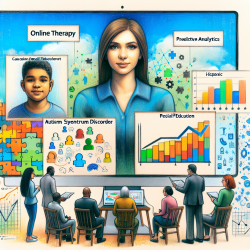Introduction
As the number of autistic students entering higher education continues to rise, the need for specialized support programs becomes increasingly critical. The recent study, "Brief Report: Autism-Specific College Support Programs: Differences Across Geography and Institutional Type," sheds light on the current landscape of Autism-Specific College Support Programs (ASPs) in the United States. This blog aims to help practitioners improve their skills by implementing the outcomes of this research or by encouraging further research into these vital programs.
The Current Landscape of ASPs
The study identified 74 ASPs across 29 states, highlighting a significant increase from previous years. These programs are disproportionately located at 4-year public institutions, particularly in the Mid-East region, while being notably sparse in 2-year colleges and certain geographic areas like New England. This uneven distribution underscores the need for a more equitable approach to support autistic students nationwide.
Key Findings and Implications
- Geographic Disparities: ASPs are concentrated in certain regions, leaving large portions of the country underserved. Practitioners should advocate for the expansion of programs in underserved areas.
- Institutional Type: The majority of ASPs are found in 4-year public institutions. Practitioners at 2-year colleges should explore ways to establish similar programs to support their autistic students effectively.
- Program Diversity: ASPs vary widely in the services they offer, from testing accommodations to social skills training. Practitioners should tailor their programs to meet the unique needs of their student populations.
Actionable Steps for Practitioners
Practitioners can take several steps to improve outcomes for autistic students:
- Advocate for Expansion: Work with institutional leaders to advocate for the creation or expansion of ASPs, especially in underserved regions and 2-year colleges.
- Customize Support Services: Tailor support services to the specific needs of autistic students, ensuring a comprehensive approach that includes academic, social, and life skills support.
- Collaborate with Stakeholders: Engage with families, community organizations, and other stakeholders to build a robust support network for autistic students.
- Conduct Further Research: Encourage research into the effectiveness of different program models and their impact on student outcomes to continually refine and improve ASPs.
Conclusion
The expansion of Autism-Specific College Support Programs offers a promising avenue for improving educational outcomes for autistic students. However, the current disparities in program availability highlight the need for concerted efforts to ensure equitable access to these vital resources. By advocating for program expansion, customizing support services, and engaging in ongoing research, practitioners can play a crucial role in empowering autistic students to succeed in higher education.
To read the original research paper, please follow this link: Brief Report: Autism-Specific College Support Programs: Differences Across Geography and Institutional Type.










